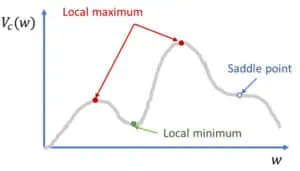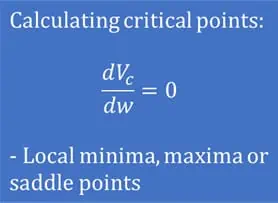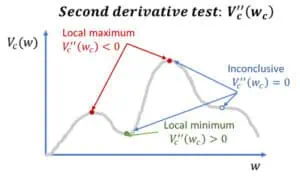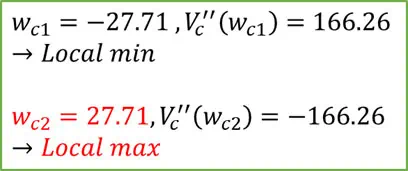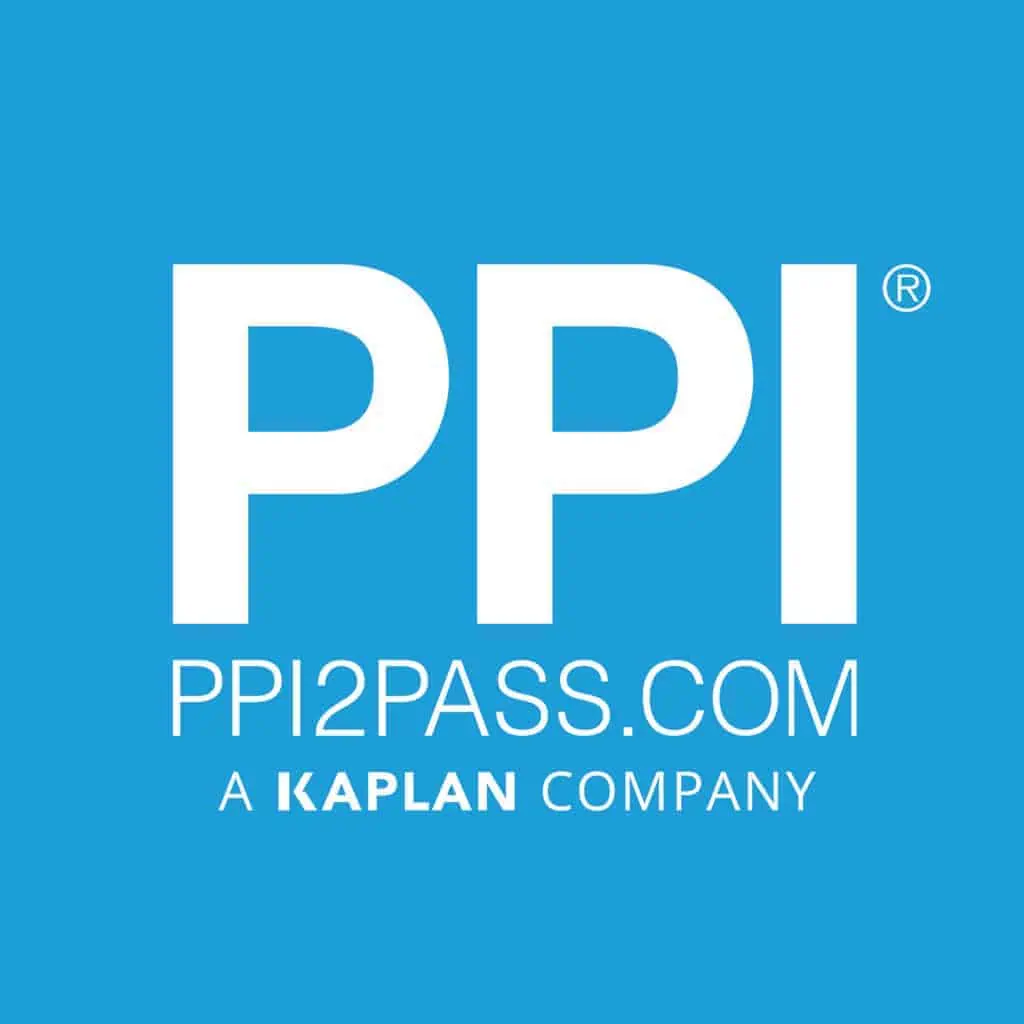In this article (and video above), you’ll learn how to apply calculus concepts to solve a common real-world engineering problem involving single-variable calculus—an essential topic from the Mathematics and Statistics section of the FE Exam.
Question:
A company is designing an open-top storage container with a square base to hold materials. Given that the total surface area of the box should not exceed 48X48 ft², what would the maximum volume of the container be?

In today’s question, we are presented with a typical real-world engineering problem. A company needs to design and manufacture an open-top storage container with a total surface area of 48X48 ft². The objective is to maximize this container’s volume while staying within these material constraints.
Determine Variables That Require Optimization
To construct this container, we’ll start with the template shown here. Because the container’s base needs to be square, our focus narrows to two dimensions: the width \(w\) and the height \(h\) of the container. By carefully optimizing these values, we can maximize the container’s total volume while also staying within the material constraints.
Explanation:
Derive Equations for the Container’s Surface Area and Volume
We begin by establishing a formula for the total surface area of our box template. The centre square (orange) has an area given by \( w^2 \). Next, we account for the box’s side panels (blue). Since each panel has an area of \( wh \) (and there are four of them), their total area contribution will be \( 4wh \). By summing these areas, we arrive at the total surface area equation for the container:
\[ A_s = w^2 + 4wh \]
Shifting our focus to the three-dimensional box; we can define its volume as the product of its three primary dimensions. With a square base, this volume will be given by:
\[ V_c = w^2 h \]
Establish a Surface Area Constraint Equation
To ensure the design stays within the surface area constraint \( 48 × 48 ft^2 \), we need to establish a constraint equation that ties the surface area equation \( A_s \) to this design parameter. In mathematical terms:
\[ A_s \leq 48 × 48 ft^2 \]
\[ w^2 + 4wh \leq 48 × 48 ft^2 \]
The total surface area (As) must be less than or equal to the available material. However, since we want to maximize the container’s volume, we assume that all of the material will be used. Our resulting constraint equation is then given by:
\[ w^2 + 4wh = 48×48 ft^2 \]
Isolate “h” from the Constraint Equation
Next, we want to isolate the variable \( h \) from this equation – a step that lets us express the container’s height solely in terms of its width. To achieve this, we first subtract \( w^2 \) from both sides of the equation, effectively moving this term to the right-hand side. Then, we divide the entire equation by \( 4w \), the coefficient in front of \( h \). After this, we arrive at the final expression:
\[ 4wh = 2304 – w^2 \]
\[ h = \frac{2304 – w^2}{4w} \]
Substitute “h” Into the Volume Equation \( V_c \)
We now use the expression for and substitute it into the volume equation derived earlier. We do this, and after multiplying in the term, we arrive at a volume equation that depends solely on the container’s width (w):
\[ V_c = w^2 \cdot \frac{(2304 – w^2)}{4w} \]
\[ V_c = \frac{2304w – w^3}{4} \]
By expressing the volume solely as a function of width, we simplify our analysis significantly.
Evaluate the Volume Function’s \(V_s\) Critical Points:
The next step is to calculate the width \( w \) that maximizes the container’s volume. To do this, we need to identify the function’s critical points.
Function Critical Points
Critical points are key indicators of where a function reaches a local maximum, minimum, or a saddle point. Mathematically, critical points occur where the first derivative of the function is either zero or undefined. If we visualize the volume function as a curve, these critical points correspond to peaks, valleys, or points where the slope momentarily flattens out:
To find the critical points of the volume function, we take its first derivative with respect to width \( w \). Using the classic power rule, we differentiate the equation and set it to zero.
\[ \frac{d}{dw} \left( \frac{2304w – w^3}{4} \right) = 0 \]
\[ \frac{2304 – 3w^2}{4} = 0 \]
Now, we solve for the container’s width \( w \) – or its critical points. First, multiply both sides by 4 to eliminate the fraction. Then, move 2304 to the other side, making it a negative term and divide the whole equation through by that -3 term in front of \( w^2 \), so it can be isolated on the left-hand side of the equation. We simplify this fraction and take the square root on both sides.
\[ 2304 – 3w^2 = 0 \]
\[ w^2 = \frac{-2304}{-3} \]
\[ w^2 = \sqrt{768} \]
\[ w = \pm 27.71 \text{ ft} \]
Since a negative container width doesn’t make sense in this context, we discard this negative value. This means the optimal container width is 27.71 ft.
\( w_c = 27.71 \text{ ft} \)
Validate the Result Using the Second Derivative Test
In this case, choosing the correct value for width was intuitive, but this might not always be the case. For example, in problems involving temperature variables, negative results might still have valuable meaning. We can mathematically confirm which critical points represent local maxima and which don’t. This is where the second derivative test comes in.
The Second Derivative Test
The test works by taking the second derivative of the function and substituting the previously obtained critical points into it. If this results in a value less than zero, the function is concave downward at that point, confirming that it’s a local maximum. If the result is greater than zero, the function is concave upward, indicating a local minimum. However, if the second derivative equals zero, the test is inconclusive, meaning the critical point could be a maximum, minimum, or an inflection point, requiring further analysis.
We differentiate the volume function one more time to obtain its second derivative with respect to its width. Using the power rule again, the constant terms disappear, leaving us with a second derivative equal to -6w.
\[ V_c” (w_c )= \frac{d}{dw_c} \left( \frac{2304 – 3w_c^2}{4} \right) \]
\[ V_c”(w_c) = -6w_c \]
\[ V_c”(w_c) = -6(\pm 27.71) \]
Substituting our critical values into this equation, we find:
Calculate the Container’s Maximum Volume
We use the volume equation derived earlier, where the container’s volume \( V_c \) is expressed in terms of its width \( w \). By substituting the critical value \( w_c = 27.71 \text{ ft} \) into this equation, we calculate the maximum possible volume of the container as \( 10,641.72 \text{ ft}^3 \).
\[
V_{c_{\text{MAX}}} = \frac{2304(27.71) – (27.71)^3}{4}
\]
\[
V_{c_{\text{MAX}}} = 10,641.72 \text{ ft}^3
\]
Validate the Area Constraint
If you’re short on time during the test, this is the point where you should verify your answer by checking the multiple-choice options. But if you want to validate that the container meets the material constraints, here’s what you can do.
\[
h = \frac{2304 – w^2}{4w} \quad \text{(derived previously)}
\]
\[
h_{\text{MAX}} = \frac{2304 – (27.71)^2}{4(27.71)}
\]
\[
h_{\text{MAX}} = 13.86 \text{ ft}
\]
\[
A_s = w^2 + 4wh \quad \text{(derived previously)}
\]
\[
A_s = w^2 + 4wh = (27.71)^2 + 4(27.71)(13.86)
\]
\[
A_s = 2304 \text{ ft}^2 = 48 \times 48 \text{ ft}^2
\]
Start by substituting the width \( w_c = 27.71 \) ft into the equation derived for the equation’s height to find that the container will require a height of 13.86 ft. Next, substitute this height and width back into the original surface area equation. Calculating this, we confirm that the total surface area is 2304 ft². And when we take the square root of this value, we find that it matches our original target surface area of \( 48 \times 48 \) ft², confirming that our calculations were correct.
Answer:
A company is designing an open-top storage container with a square base to hold materials. Given that the total surface area of the box should not exceed 48X48 ft², what would the maximum volume of the container be?
The correct answer is A.
Conclusion
To conclude, the objective of this problem was to optimize a container’s volume while ensuring it adhered to a given surface area constraint. Throughout this process, we derived mathematical expressions for both surface area and volume, allowing us to establish a constraint equation that defined their relationship. By expressing volume as a function of width alone, we simplified our calculations and applied both the first and second derivative tests to determine the container’s optimal dimensions. By systematically applying calculus and optimization techniques, we successfully determined the maximum volume of our container while staying within the given surface area constraints.
I hope you found this week’s FE Exam article helpful. In upcoming articles, I will answer more FE Exam questions and run through more practice problems. We publish videos bi-weekly on our Pass the FE Exam YouTube Channel. Be sure to visit our page here and click the subscribe button as you’ll get expert tips and tricks – to ensure your best success – that you can’t get anywhere else. Believe me, you won’t want to miss a single video.
Lastly, I encourage you to ask questions in the comments of the videos or here on this page, and I’ll read and respond to them in future videos. So, if there’s a specific topic you want me to cover or answer, we have you covered.
I’ll see you next week… on Pass the FE Exam
Anthony Fasano, P.E., AEC PM, F. ASCE


